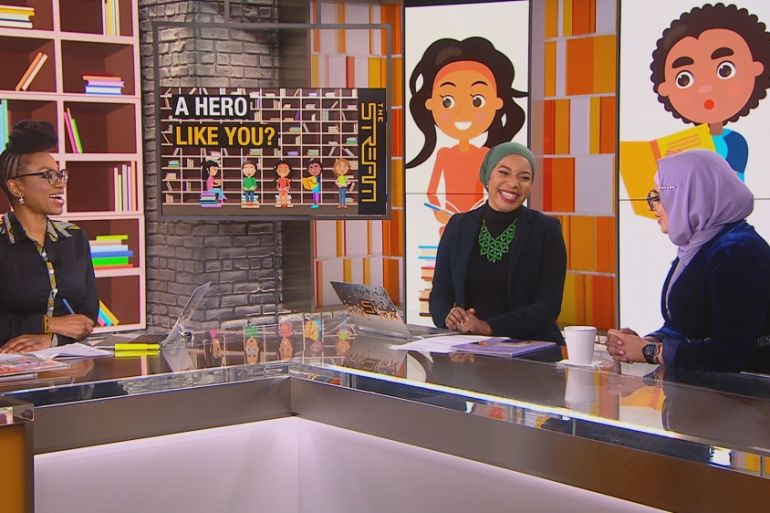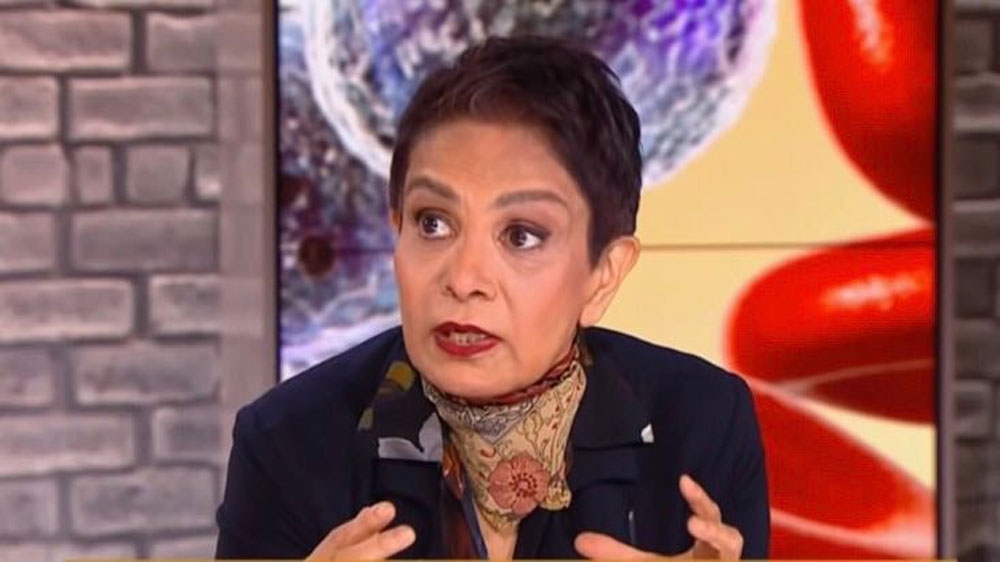How The Stream ended up booking more female guests than male
Project that started by tracking number of female guests sees Al Jazeera live talk show exceed gender-representation goal and increase audience.

There are many things we say in journalism. Things we’ve been saying for years. The sort of things that older journalists tell you when you start out in the business.
Some are harmless, useful even: “Don’t put yourself in the story,” or “Think of a news piece like an inverted pyramid.”
Keep reading
list of 4 itemsWall Street Journal cuts Hong Kong staff, shifts focus to Singapore
Abu Dhabi-backed group ends bid to take over Telegraph newspaper
Two Russian journalists arrested over alleged work for Navalny group
Others, though, alleged truisms passed down through newsrooms, can be harmful and should be challenged. Because journalism, like any other profession, needs to always be evolving.
For example: sure, it would be nice to interview more women, but there aren’t enough of them in politics or business or diplomacy. Or, of course, we’d feature them if they existed, but we can’t find them. It’s a nice aspiration, people would say. But it’s just that.
Is any of that true today, though? Was it ever?

At The Stream, a live talk show on Al Jazeera English, we are a diverse team, which informs the decisions we make on what topics to cover and how. So, when it came to gender we figured we were probably doing pretty well.
Most of our team are women, including our two presenters and our senior producer, and we have always tried to make sure we have compelling female guests – not an easy task on a show that goes out four days a week and features 600 – 700 guests every year.
In 2017, though, one of our producers, Ellie Sennett, put that assumption to the test by telling us she had taken the initiative to start tracking the gender balance of our shows. The findings were not great: we were booking more men than women.
Though we didn’t know it yet, that data would spark change. It niggled at us and spurred conversations about how to do better.
That year, we improved somewhat but, at the end of 2017, the statistics still favoured men: 56.5 percent to 43.5 percent.
So, we set a challenge. Could we make it to at least a 50:50 gender balance for the entire year of 2018?
Though we would, of course, seek to balance each show, we wanted to test ourselves over a meaningful period of time. We felt a full calendar year would prove our consistency.
Skewed conversations
In one very fundamental way, it became easier from that point on. The responsibility for tracking the data was passed on through several staff members and, though there were busy periods when we failed to keep up, we always went back and got it up to date again. Seeing the numbers kept us thinking and kept us talking.
Truism after truism fell away and we never once had to compromise on the quality of our show – we only ever went after the best possible guests. Once you start booking more and more great women, your contacts improve and it gets easier and easier.
For us, it paid off. We ended 2018 with almost exactly a 50:50 ratio: 346 men and 347 women. And this year, we hosted approximately 54 percent women to 46 percent men.
Now, we make a pledge: The Stream will every year ensure that at least 50 percent of our guests are women.
Our audience doesn’t appear to mind. We have just enjoyed our most successful two years ever on YouTube – our views are way up and engagement is through the roof compared with before. I’m not entirely sure it’s a coincidence that this happened during our gender project.

The reason all of this is important, the reason it is worth thinking about and talking about and writing about, is that news programming and the media, in general, is at its most effective when it is representative and reflects the societies in which it operates.
Gender-imbalanced newsrooms and gender-imbalanced panels can only lead to imbalanced reporting and skewed conversations.
Men – who still occupy the overwhelming majority of newsroom management positions – need to be involved in correcting these imbalances, too. And in getting out of the way so that more women can occupy positions such as mine.
Ultimately, that is what will bring real change.
Barry Malone is executive producer of The Stream. The Stream will air a special episode about its gender representation project on Thursday, December 18. You can watch it here.